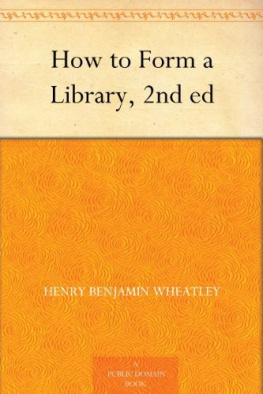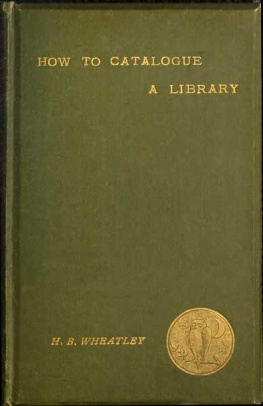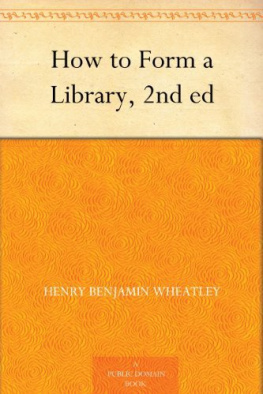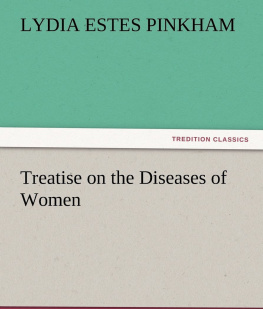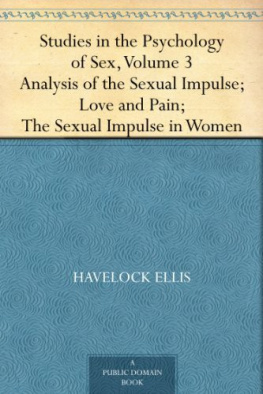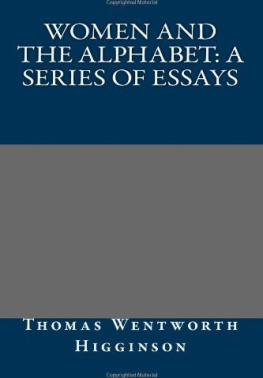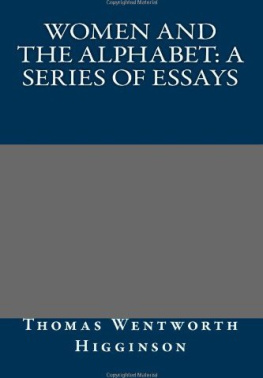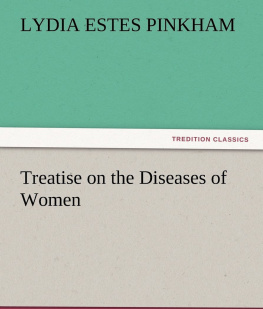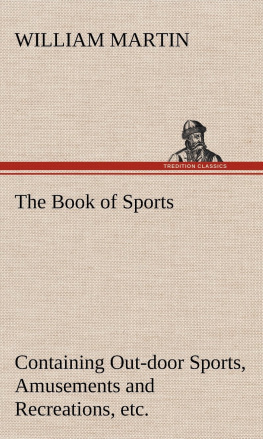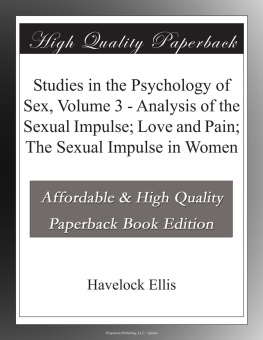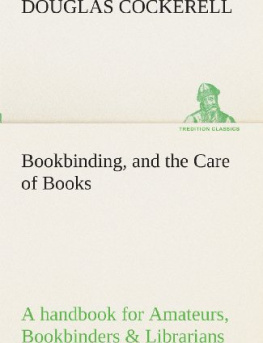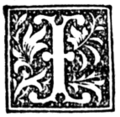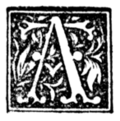H.B. WHEATLEY, F.S.A.
SECOND EDITION.
It will be generally allowed that a handy guide to the formation of libraries is required, but it may be that the difficulty of doing justice to so large a subject has prevented those who felt the want from attempting to fill it. I hope therefore that it will not be considered that I have shown temerity by stepping into the vacant place. I cannot hope to have done full justice to so important a theme in the small space at my disposal, but I think I can say that this little volume contains much information which the librarian and the book lover require and cannot easily obtain elsewhere. They are probably acquainted with most of this information, but the memory will fail us at times and it is then convenient to have a record at hand.
A book of this character is peculiarly open to criticism, but I hope the critics will give me credit for knowing more than I have set down. In making a list of books of reference, I have had to make a selection, and works have been before me that I have decided to omit, although some would think them as important as many of those I have included.
I need not extend this preface with any lengthy explanation of the objects of the book, as these are stated in the Introduction, but before concluding I may perhaps be allowed to allude to one personal circumstance. I had hoped to dedicate this first volume of the Book Lover's Library to Henry Bradshaw , one of the most original and most learned bibliographers that ever lived, but before it was finished the spirit of that great man had passed away to the inexpressible grief of all who knew him. It is with no desire to shield myself under the shelter of a great name, but with a reverent wish to express my own sense of our irreparable loss that I dedicate this book (though all unworthy of the honour) to his memory.
CONTENTS.
HOW TO FORM A LIBRARY.
Introduction.
Although there can be little difference of opinion among book lovers as to the need of a Handbook which shall answer satisfactorily the question"How to Form a Library"it does not follow that there will be a like agreement as to the best shape in which to put the answer. On the one side a string of generalities can be of no use to any one, and on the other a too great particularity of instruction may be resented by those who only require hints on a few points, and feel that they know their own business better than any author can tell them.
One of the most important attempts to direct the would-be founder of a Library in his way was made as long ago as 1824 by Dr. Dibdin, and the result was entitled The Library Companion.[1] The book could never have been a safe guide, and now it is hopelessly out of date. Tastes change, and many books upon the necessity of possessing which Dibdin enlarges are now little valued. Dr. Hill Burton writes of this book as follows in his Book-Hunter: "This, it will be observed, is not intended as a manual of rare or curious, or in any way peculiar books, but as the instruction of a Nestor on the best books for study and use in all departments of literature. Yet one will look in vain there for such names as Montaigne, Shaftesbury, Benjamin Franklin, D'Alembert, Turgot, Adam Smith, Malebranche, Lessing, Goethe, Schiller, Fnlon, Burke, Kant, Richter, Spinoza, Flechier, and many others. Characteristically enough, if you turn up Rousseau in the index, you will find Jean Baptiste, but not Jean Jacques. You will search in vain for Dr. Thomas Reid the metaphysician, but will readily find Isaac Reed the editor. If you look for Molinus, or Du Moulin, it is not there, but alphabetical vicinity gives you the good fortune to become acquainted with "Moule, Mr., his Bibliotheca Heraldica." The name of Hooker will be found, not to guide the reader to the Ecclesiastical Polity, but to Dr. Jackson Hooker's Tour in Iceland. Lastly, if any one shall search for Hartley on Man, he will find in the place it might occupy, or has reference to, the editorial services of 'Hazlewood, Mr. Joseph.'"
Although this criticism is to a great extent true, it does not do justice to Dibdin's book, which contains much interesting and valuable matter, for if the Library Companion is used not as a Guide to be followed, but as a book for reference, it will be found of considerable use.
William Goodhugh's English Gentleman's Library Manual, or a Guide to the Formation of a Library of Select Literature, was published in 1827. It contains classified lists of library books, but these are not now of much value, except for the notes which accompany the titles, and make this work eminently readable. There are some literary anecdotes not to be found elsewhere.
A most valuable work of reference is Mr. Edward Edwards's Report on the formation of the Manchester Free Library, which was printed in 1851. It is entitled, "Librarian's First Report to the Books Sub-Committee on the Formation of the Library, June 30, 1851, with Lists of Books suggested for purchase." The Lists are arranged in the following order:
1. Workscollective and miscellaneousof Standard British authors; with a selection of those of the Standard authors of America.
2. Works relative to the History, Topography, and Biography of the United Kingdom, and of the United States of America.
3. Works relative to Political Economy, Finance, Trade, Commerce, Agriculture, Mining, Manufactures, Inland Communication, and Public Works.
4. Works relating to Physics, Mathematics, Mechanics, Practical Engineering, Arts, and Trades, etc.
5. Voyages and Travels.
6. Works on Zoology, Botany, Mineralogy, and Geology.
7. Periodical Publications and Transactions of Learned Societies (not included in Lists 2, 3, or 6), Collections, Encyclopdias, Gazetteers, Atlases, Dictionaries, Bibliographies, Indexes, etc.

